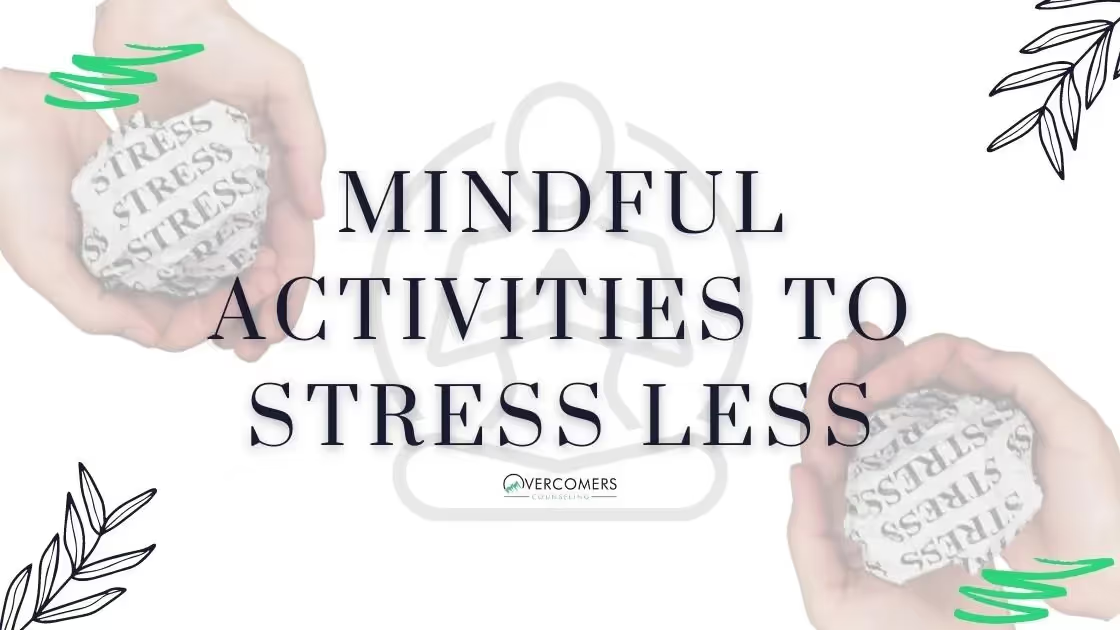We often go through the motions of the everyday. From work, to home, to sleep, and back to it all over again. Not to mention if you have a bad day at work,...

We often go through the motions of the everyday.
From work, to home, to sleep, and back to it all over again.
Not to mention if you have a bad day at work, or something happened at home, stress can compound on top of you.
Stress is never a good feeling to have, although many do suffer from it.
Anxiety can also play a part in stress as well.
That is why it is important to be mindful of your situation and learn to take a step back and cope with your stress in a healthy way.
There are plenty of ways that you can learn to stress less, and learn to be more mindful of the things around you.
Guided meditations are such a powerful tool in the mindfulness toolbox.
The wonderful thing about them is that you can use them anytime you are feeling stressed.
If you come home, and it was a hard day, and you are feeling it, find a guided meditation on Youtube that is suitable to you, and just let your thoughts and feelings float away.
You will be able to refocus and re-center your mind by listening to a meditation or two.
They will take you away from the everyday, and into perhaps a beach scene, or maybe the top of a mountain, teaching you to be mindful.
Whatever it is that you like, immerse yourself fully into the experience and let the stress begin to melt off of you as you mesh with the meditation.
Our breath is probably our most important tool in working with stress and anxiety.
From box breathing to belly breathing, there are a variety of different breathing techniques that you can employ when you feel yourself getting stressed out.
Breathing exercises are meant to place your body into a relaxed state.
This is most helpful especially when you are dealing with stress.
One wonderful thing about breathing techniques for anxiety and stress is that it is something that you can use anywhere and anytime.
For example, if you are at work, and something is really stressing you out and bugging you.
You can sit at your desk, and just perform a breathing exercise.
No one will even notice that you are doing it.
Give yourself grace when you need it, though, and if you are feeling overwhelmed, never be afraid to ask for a quick break, especially if you feel yourself getting increasingly anxious.
If you go outside, the breathing techniques are even better because you are inhaling the fresh air outdoors. This is another great way to be mindful.

Affirmations are words of encouragement and self-empowerment.
When our minds are stressed out, we end up thinking negative thoughts.
A lot of them tend to be directed towards ourselves.
Another way to be mindful is to use affirmations when you feel yourself getting a little stressed.
Showing yourself compassion and love can go a long way.
You are challenging your mind when a thought about you not being good enough or something similar pops up.
Chase it away!
Practice talking to yourself (not aloud if you do not want to) and telling yourself at least one good thing you love about yourself.
Say what your dreams are, how you are going to fulfill them.
Tell yourself that you are kind and loveable, and see how quickly your thought patterns can change.
Affirmations are another exercise that you can do anywhere, as you can say them to yourself in your head.
We have a powerful tool with our five senses.
We are able to see, smell, taste, hear, and touch.
The beauty in how to be mindful with your five senses is using them as a technique to ground yourself.
If you feel yourself getting stressed out or anxiety is coming, you can easily calm it down by using your five senses.
If you are sitting, think about how the chair feels. Is it hard, soft?
Does it have armrests?
What about what you can smell?
What does the air smell like?
Fruity, or floral, or maybe like lunch has arrived!
Focusing your mind on these things directly can help you focus on mentally gathering yourself back up and ready for what may come next.
When it comes to seeing, you can focus your eyes on something in the distance, and just hold your gaze there for a moment or two, concentrating on it.
Soon enough, you might even forget what you were stressed out about in the first place.

It can be incredibly stressful hopping from one computer screen to another, opening up multiple tabs, having documents open, and checking your email.
When you are multi-tasking, you are not giving full attention to any one task at hand, but you are only giving partial attention to the other projects you are working on.
It can feel like a weight on your shoulders when there are a lot of things to do.
But you can slow down your mind a bit from going in ten different directions by just taking the time to focus on one thing.
You will find that when you put your mind on one task at a time, you can easily finish them quicker, and deliver high quality work at the same time.
When it comes to being mindful in the face of stress, there are so many ways that you can perform mindfulness activities wherever you are.
In today's day and age of always rushing about and being glued to our cell phones, finding ways to be mindful is a beautiful way to also just step back and admire the beauty in your life.
It helps you to slow down and calm your nerves.
If you are experiencing more stress than usual, or are having anxiety issues, we can help.
Please call (800) 498-8043 and one of our receptionists will help you to find the right counselor for you that can help you to learn stress reduction techniques and how to practice mindfulness
The duration of anxiety counseling varies for each individual, depending on the severity of their anxiety and their progress in therapy. Our therapists will regularly assess your progress and adjust your treatment plan as needed.
Ignoring anxiety can exacerbate symptoms and make it more challenging to manage over time. This can result in a negative impact on your personal, professional, and social life, leading to feelings of isolation and even depression.
Other activities which have been found helpful in reducing both immediate feelings of anxiousness and long-term anxieties associated with chronic disorders include yoga, journaling, nature walks, art therapy, volunteering, and other low-stress activities. Additionally, developing a healthy lifestyle incorporating adequate sleep, physical activity, and nutritious meals can help reduce overall stress levels.
Addressing anxiety is crucial because it can significantly impact your quality of life and overall well-being. Left untreated, anxiety can lead to more severe mental health issues, relationship problems, and difficulty functioning in daily life.
It's important that you feel comfortable discussing personal matters with your therapist in order to open up and get more out of therapy sessions; therefore finding someone who meets certain criteria like experience level, expertise areas, and personality is key when selecting a therapist who can give meaningful feedback about how best handle issues related to anxiety or other mental health concerns.
To reduce your anxiety, you can practice relaxation techniques such as deep breathing, progressive muscle relaxation, guided imagery, and mindfulness practices. Additionally, regular exercise has been found to be beneficial in managing stress and improving mental health.